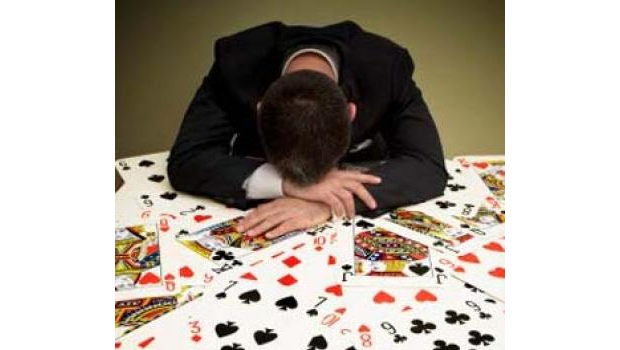
Gambling has been a popular form of entertainment for centuries, and in recent years, it has gained even more prominence due to technological advancements like online casinos and mobile betting platforms. Despite its negative connotations, there is an increasing understanding of the critical role it plays for players. This essay will delve into the importance of gambling for players, explaining the different facets of its appeal, such as its entertainment value, the thrill of risk-taking, its potential for social interaction, and the possibility of making money.
Perhaps the most significant factor contributing to the appeal of gambling is the sheer entertainment value it offers. It provides an exciting break from everyday routines and mundane tasks. Whether it’s a game of blackjack, spinning the reels of a slot machine, or predicting the winner of a football game, the act of gambling provides a rush of adrenaline that many people find immensely enjoyable.
Online and mobile casinos have introduced an entirely new level of convenience and variety to this form of entertainment. Players now have the opportunity to engage in their favorite gambling activities from the comfort of their own homes, or even on the go, which has served to widen the appeal of these activities even further.
Humans are intrinsically risk-takers. We thrive on the adrenaline rush that comes with taking risks, and gambling serves as a relatively safe outlet for this urge. The thrill of placing a bet and awaiting the outcome is an experience that taps into our primal instincts.
In games of chance, the uncertainty and unpredictability of the outcome is part of the appeal. While it can lead to loss, the potential for a big win is always present, keeping the suspense and excitement levels high. It’s this suspense, this potential for an unexpected and significant reward, that drives players to gamble.
While it’s true that the house always has an edge in the long run, the potential for profit is still a significant draw for many players. For some, gambling isn’t just about the thrill or entertainment; it’s also about the opportunity to make money.
Strategic games like poker and sports betting involve a considerable degree of skill and knowledge. The more you understand about the game or the sport, the better your chances of making profitable decisions. For these players, gambling isn’t just a form of entertainment but a potential source of income, albeit one with inherent risks.
For many, gambling is a social activity that offers a chance to interact with others. Brick-and-mortar casinos are often lively places filled with social interaction. People gather around tables, cheer each other on, and share the highs and lows of their gambling exploits.
Online gambling platforms have also found ways to incorporate this social aspect. Live dealer games simulate the casino atmosphere, allowing players to interact with dealers and other players. Online poker rooms and sports betting communities offer forums and chat rooms where players can discuss strategies and share their experiences.
Gambling can also be intellectually stimulating. Games like poker, blackjack, or sports betting require strategic thinking, understanding probabilities, and making calculated decisions. These mental challenges can be a significant draw for players who enjoy applying their minds and skills.
This aspect of gambling can have positive impacts beyond the gaming tables. It can aid in the development of critical thinking skills, problem-solving capabilities, and even help improve memory and concentration.
While gambling should always be approached responsibly, it undeniably holds significant importance for many players. Its multifaceted appeal – from providing entertainment and a thrilling risk-taking experience to offering potential profits, social interaction, and mental stimulation – explains why gambling continues to attract millions worldwide.
Players should, however, remember that gambling also comes with the potential for addiction and financial hardship. It’s essential to gamble responsibly, set limits, and seek help if gambling starts to become a problem.
1. Why do people enjoy gambling? People enjoy gambling for various reasons. Some enjoy the thrill of risk-taking, while others see it as a form of entertainment. Some enjoy the potential for profit, especially in games of skill like poker or sports betting. Others enjoy the social interaction and mental stimulation that certain games provide.
2. Is it possible to make a profit from gambling? While the house typically has an edge, some forms of gambling, like poker and sports betting, involve a degree of skill and knowledge that can give players an advantage. However, it’s important to remember that gambling should primarily be viewed as a form of entertainment, not a reliable way to make money.
3. How can I gamble responsibly? Responsible gambling involves setting limits on how much time and money you’re willing to spend, never borrowing money to gamble, and not letting gambling interfere with your personal or professional life. If gambling starts to become a problem, it’s essential to seek help immediately.
4. Can gambling be a social activity? Yes, gambling can be a social activity. Brick-and-mortar casinos are often lively places filled with social interaction, and online platforms offer chat features and forums where players can interact with each other. However, it’s important not to let the social aspect of gambling push you to bet more than you’re comfortable with.
5. Does gambling require skill? Some forms of gambling, like slot machines or roulette, are based entirely on chance. However, other forms, like poker or sports betting, require a considerable degree of skill and knowledge. The more you understand about these games, the better your chances of making profitable decisions.
July 27, 2024
July 27, 2024
July 27, 2024